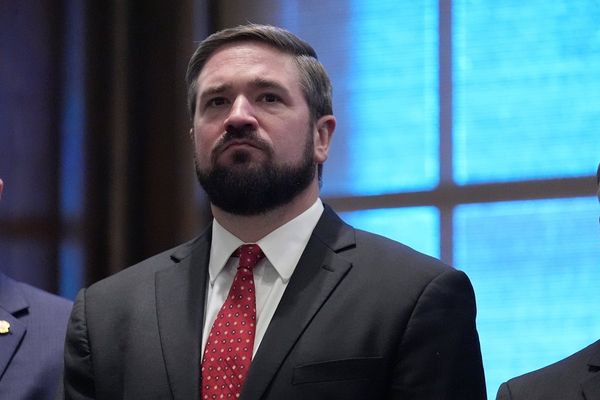
When it comes to some topics, the prime minister is happy to be guided by experts.
“I’m happy to engage in a debate about facts … because the facts and the science tells us that it simply doesn’t stack up,” said Anthony Albanese at a press conference announcing Matt Kean as the new chair of the Climate Change authority.
On climate change, the Albanese government says it will “follow the science”. (Whether that’s true is another matter). Or that it will pursue “evidence-based” solutions, which it has also promised for other issues like gender-based violence or closing the gap. The government has leaned into this point of difference with the previous government, painting its predecessor as climate denialists and dinosaurs.
So why does this commitment to expertise and knowledge end when it comes to children and social media?
This week, Albanese said that his government will legislate a minimum age on social media, although he has not committed to an age nor a method. Not to be outdone, Opposition Leader Peter Dutton pledged to do the same thing within the first 100 days of his government. This comes following a campaign by News Corp and Nova’s Michael “Wippa” Wipfli to restrict children under 16 from using social media, as well several state premiers promising to do the same.
This is all in the name of protecting children from nasty things online. The prime minister — sounding a lot like his predecessor, it must be said — is talking about about how kids should be on the “footy fields or netball courts” and not online, as if to suggest that talking to someone over social media isn’t a “real” experience.
You’d think, given the bipartisan and mainstream media support for it, that this policy would be effective. That it would have support from experts. And from the people it impacts and those who represent them. That it was “evidence-based” and “follows the science”.
You might assume that, but it’s not the case.
As previously covered, the vast majority of academics who research teen use of social media and the internet do not support a full ban for children. While they acknowledge there are real dangers, they also point to potential benefits. Groups representing young Australians, too, say a ban could make it harder for young people to access mental health support or to express themselves. Anti-youth bullying organisation PROJECT ROCKIT co-founder Lucy Thomas called the ban a “distraction” from real issues affecting children’s safety.
Earlier this year, the government’s own eSafety commissioner not-so-subtly made the case against the ban — with a rather pointed plea to make sure policy was “being informed by robust and rigorous research”. A group of teens brought together for the eSafety commissioner’s youth council also made a case against the ban, saying that “social media is a tool to exercise these rights and it is important to remember that social media is neither good nor bad — but rather the intention and execution in using this tool defines its impact.” Now, as happened to the members of the government’s climate change youth advisory group, their opinions have been disregarded.
There is clearly a desire to do something about teens’ well-being. Parents are concerned about their children, and there are things we can do to improve the internet for our children (and maybe even for the rest of us). Coming up with sophisticated solutions is possible, even if it isn’t as easy as a ban.
Instead, we have a government that is cowing to vibes and vested interests (News Corp and other Australian media companies have campaigned heavily on the social irresponsibility of tech companies during the fight over the news media bargaining code).
We’ve got a prime minister throwing under the bus the LGBTQIA+ teens, the people with disabilities, the Aboriginal and Torres Strait Islanders, the young men, who all see real benefits from using social media according to his own government. He is playing into parents’ worst fears rather than trying to have a nuanced discussion about this topic. What’s worse is that this discussion distracts from real efforts to help children.
In that way, it’s not that different to the fight over climate change. Replace “social media ban” with “gas-led recovery”. Instead of telling kids not to worry about climate change, it’s telling them to log off as if that will solve all their problems. It’s ignoring experts in favour of a politically expedient approach.
Simply put, the Albanese government is embracing technology denialism in order to appear like it’s helping our children, while stalling on reforms that might actually make a difference.
Do you back a ban on social media for young people? Or are there better solutions? Let us know your thoughts by writing to letters@crikey.com.au. Please include your full name to be considered for publication. We reserve the right to edit for length and clarity.







